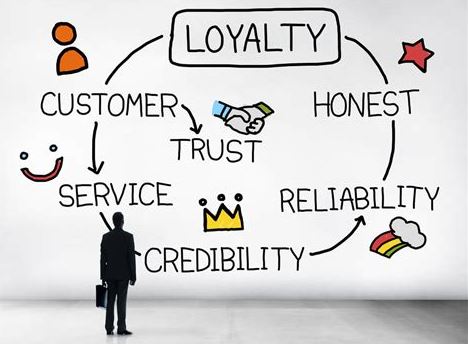Be well aware of the trust factor of Ecommerce
Trust is perhaps the ultimate success factor of Ecommerce. Any breach of trust between online retailers and customers hurts the reputation of online shopping. That online shops are listed as 'notorious defaulters', as identified by the Consumers' Association, is a blot on the industry's record. Especially now that, partly due to corona, it is growing against the odds. For any serious Ecommerce entrepreneur: be well aware of the trust factor of Ecommerce.
The trust factor of Ecommerce is determined by several elements. Think of the performance of your application, secure payment procedures and the fulfillment of delivery agreements. And don't forget the transparency in your pricing policy. Even if you have a dynamic pricingapplying strategy. And last but not least: the way in which you as a web retailer deal with agreements about refunds for returned items also has a major influence on the trust factor of Ecommerce. And that's where a lot goes wrong.
Not good, money back – within 14 days!
According to the Consumers' Association, online stores remain 'notorious defaulters'. That lies in continuing to violate the rules for refunds on returns. Those rules are crystal clear. As a webshop you are legally obliged within 14 days refundable from the moment the customer has indicated to return the received order. When you actually receive the return, it does not matter in this case. The Netherlands Authority for Consumers and Markets (ACM) has already established that many online stores incorrectly inform their customers about this. That goes against the letter of the law in.
The consumer association bases its strong accusation on research into the behavior of online stores with regard to returns. This is the seventh time in a row that this survey has taken place. As part of the sample, the consumer organization ordered more than 600 items from more than 200 online stores. Half of the stores surveyed are affiliated with Thuiswinkel Waarborg or Webshop Keurmerk. All ordered items were returned within 14 days.
Many established names make fun of the reliability factor of Ecommerce
Just under half of the online stores adhered to the rules. However, more than half (52%) took it less seriously. Refunds were either too late or too little. The average waiting time was up to 41 days. In some cases, no money was refunded at all. Among the 'notorious defaulters' are a striking number of established names.
Confronted with their incorrect payment behaviour, the web shops approached put forward various arguments. Frequently heard variants are crowds, relocations, IT worries and insufficient knowledge of the regulations. All excuses, according to the Consumers' Association, which will let you know to be disappointed in the sector. Quote: 'The rules are crystal clear, yet half of the stores manage to get it wrong. Even big chains. Just pay on time and repay the correct amount. It's not that hard, is it?'
Prevent loss of turnover and reputation damage
Incidentally, from the continued growth that online retail is experiencing, with the corona crisis as an extra boost, you could conclude that consumers themselves do not take the 'injustice' that is being done to them so seriously. However, not handling return and refund procedures correctly will often lead to your customers no longer seeing them in your webshop. Resulting in a loss of revenue. Moreover, non-payment or late repayment can lead to negative reviews and unwanted commotion on social media. Reputations are fragile. The reputation of the sector as a whole also requires care. As mentioned: the trust factor of Ecommerce is essential for further growth.
The money back guarantee is pre-eminently a core principle of online transactions. After all, consumers cannot optimally assess coveted products. They have to make do with images, product descriptions and reviews. That's where the trust starts. By being transparent about both the products and the ordering, payment and delivery procedures, you as a web store build a bond of trust with your audience. For example, non-authentic, paid reviews are not part of this. It is not for nothing that the government fights against fake reviews.
Be careful of important trust factor for Ecommerce
What is expressly included is the guarantee that consumers can return what they order without condition and see their money back in their account within 14 days. Consumers almost automatically assume that this is the case. There should be no doubt about this when building and maintaining the relationship of trust between online stores on the one hand and the public on the other.
In fact, the agreements regarding the timely repayment of items to be returned is one of the pillars for the trust factor of Ecommerce. The fact that the Consumers' Association is cracking down on this for the seventh consecutive time is an important signal for hard-learned Ecommerce brands. The sector is prospering, but that should never be a license not to honor agreements properly. Reputations have been destroyed for less.


